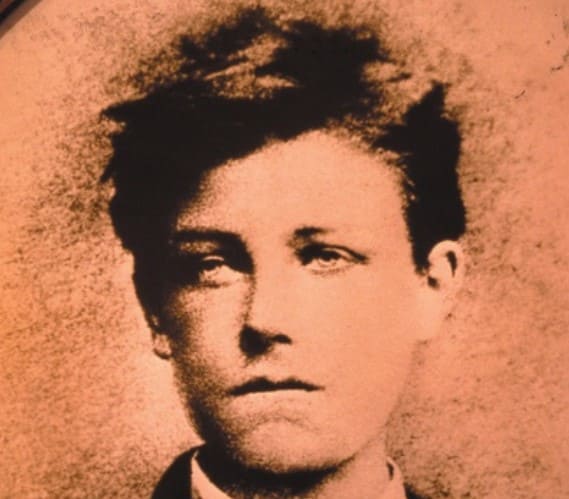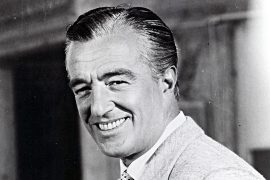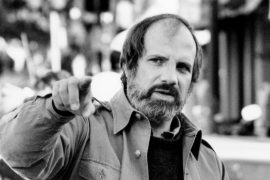Pop culture has always loved him. The American singer Patti Smith quoted Rimbaud in her songs and last year she even bought the house in France where he wrote his wildest poems. Bob Dylan, the Doors or Kurt Cobain and before that Benjamin Britten, Luigi Nono and Paul Hindemith included the poetry of the young Frenchman in their music, as did Fernand Léger in his work. Rimbaud had not the slightest interest in the glittering world of the general public. He was more of the nerd who created his work lonely and mostly alone, immersed himself in the abysses of poetry and came to completely new insights.
Arthur Rimbaud (1854–1991) was aware early on of his destiny as a gifted man. As the best student on a regular basis, often outperforming his classmates in competitions, he was the pride of his mother, who was hoping for a great career for her offspring. He grew up in the French provinces near the Belgian border, in Charleville on the banks of the Meuse. Because his father left the family early, Rimbaud grew up with his mother Vitalie and his siblings in a Catholic upbringing. He didn’t have to spend any time studying at school, he was able to do everything immediately; he won prize after prize at school and excelled at composing Latin and Greek poetry. Since everything was so easy for him, he quickly began to search for more – defiance and rebellion arose in him, which Rimbaud indicated in his youthful poem “Seven Years Old Poet”: “The mother closed the exercise book, Very proud and simple / She now stood up and went. Oh, she didn’t notice/ what his clear forehead, his black eyes said,/ how disgust gnawed at the child’s soul./ during the day, yes, he’s very obedient, clever/ he is; and yet, many a dark, strange trait/ He often speaks of evil hypocrisy…” He realizes that he is different, and what happens in these few lines is typical of all of Rimbaud’s later poetry: his work circles about his own person, he does not disregard himself and thus creates himself as his work.
This gesture is reinforced by Georges Izambard, who, a few years older than Rimbaud himself, comes to Rimbaud’s school in 1870 and becomes his teacher. The well-read Izambard opened up a new literary world for Rimbaud, into which the fifteen-year-old with the angelic face dives willingly. The two soon see each other outside of school; Rimbaud uses the teacher’s apartment, to which he has a key, as a reading refuge. Here he also finds books that his mother finds unfathomable and from which she wanted to protect him. When he brought home “The Miserables” by Victor Hugo, she felt compelled to write a letter of complaint to Izambard because “great caution is required in the choice of books to put into the hands of children”. Izambard, however, was undeterred after a conversation with his mother and gave his pupil what he wanted to read.
During these months a second feature of Rimbaud’s, his wanderlust, became apparent. When his younger brother managed to register as a volunteer in 1870, Rimbaud also believed he could leave home and boarded a train to Paris without a ticket, which resulted in a brief stay in prison. Izambard redeemed it with money. It was the first of several escapes and a prelude to Rimbaud’s stays in Africa, the idea of which he developed when he later roamed the docks of London with his poet friend Verlaine and heard stories from the sailors about distant lands. But at the age of 16 and 17, the young poet had his darkest experiences.
Rimbaud saw himself as a seer. He considered himself superior to contemporary poets and despised their rhymes. “I am someone else”, he wrote in the “Letter of a Seer” to Izambard: “It is wrong to say: I think, one should rather say: one thinks me.” A higher voice speaks through the poet, that is to say, even against his will – making verses is not workshop art, as it is still often understood today – the conscious creation of poems. But Rimbaud used all available means to let himself be carried into a mood of eternity, with drugs and alcohol, but especially with occult literature. He had not yet discovered Christianity as a possible path, but his inner struggle for God began to show itself.
The search for the new poetry also included his discovery of Baudelaire (1821–1867), about whom Rimbaud writes: “But since seeing the invisible and hearing the unheard is something other than the descriptive rendering of dead things, Baudelaire is the first seer , king of poets, a true god. Unfortunately, he lived in too artificial an environment, and his much-vaunted literary form is banal. Unknown discoveries call for new literary forms.” And Rimbaud goes on to explain: “If all the old fools had not clung to the wrong conception of self, we would not need to sweep away the millions of skeletons who from time immemorial have amassed the products of their one-eyed intellect , which they are still proud of.” Rimbaud wanted to destroy the ego in order to build a new life, a new world, on its ashes. And he gave himself up to this search unreservedly, unlike Baudelaire, who, although he also threw himself into intoxication and drugs, but whose Catholicism led him to warn those around him against excess. But Rimbaud wanted to become the highest sage at all costs, “le supreme savant”.
Irish Rimbaud biographer Enid Starkie has followed his dark ways, who believed the world hungered for a new poet to guide humanity. Thus Rimbaud came across the writings of magicians and alchemists, from whom he hoped liberation for mankind and inspirational confusion of the senses. Among the authors he read was the historian Jules Michelet, who saw European history as dominated by wizards and witches rather than by the church. This also included the Kabbalist Éliphas Lévi, according to whom the magician had to reach the “point central” that enabled him to become a “thaumaturge” and thus become the master of the world. For a time, Rimbaud really believed he was on this path with his poetry, because nature obeyed him with the creation of new plants, colors and worlds. He hoped to be able to reconcile Christ and Satan, which Michelet thought only the church had stopped until now, and Rimbaud believed that this would bring about a new world order. Similar to what Picasso would later say, “For me, a picture is the sum total of destruction”, Baudelaire already had the art of “deforming” the real. Rimbaud made this the main thing, so that the orders change, “plains, deserts, horizons become the red dress of thunderstorms”, where a July morning tastes of wintry ash, or would the poets only have the “roses, those puffed-up roses/ Red on Laurel stems / And thousands of swollen octaves”. With Mallarmé, too, it is not about superficial understanding, but rather about the meaning of the poem, about which he wrote in an essay in 1896: “To name a thing means to spoil three-quarters of the enjoyment of a poem; enjoyment consists in gradual guessing; suggesting the thing, here lies the goal.” In German poetry, Georg Trakl and Gottfried Benn will follow Rimbaud.
The intensive mixing of alchemical knowledge and insights into poetry led Rimbaud to the poem “Vowels”: “A black E white I red U green O blue – vowels/ One day I will reveal your dark origins:/ A: black velvety armor of dense flocks of mosquitoes / Those whizzing over cruel stinks, shadowy parts.// E: Brightness of vapors and taut lines/ Spears of proud glaciers, shining princes blow from umbels/ I: Blood spat out purple, laughter of the fair ones/ In anger and in the drunkenness of torments… The colors dissolve images and reassemble them – in alchemy the completed work was seen as God’s vision. And yet the poems are a unique document of homelessness, which for Rimbaud even encompasses the Christian world.
Rimbaud’s collection of poems A Time in Hell (Une Saison en Enfer), in which he fought out his struggle for God, is most relevant to this feeling. It was probably above all his pride and his youthful defiance that led him to rebel against the faith. But the contradiction stands entirely under the auspices of faith, and he was never really able to escape from this. He dealt with God, faith and life in these poems. The French poet Paul Claudel wrote about Rimbaud: “Arthur Rimbaud is not a poet, he is not a writer. He is a prophet upon whom the Spirit descended, not like David, but like Saul. Such was this horror, this curse, from which he, like Jonah, sought to escape by blasphemy and flight.” A boy of 18 brings us “the most heartbreaking sob that mankind has heard since the days of Ephraim and Judah, the message of paradisiacal purity, in the midst of a dull world wallowing in an outrageous materialism.”
Rimbaud was baptized and he felt the original sin in himself. In his rebellion against God’s love, he recognizes his weakness: “The skin on my head is shrinking. Mercy! Lord I’m scared. I’m thirsty, I’m so thirsty! Oh! childhood, the grass, the rain, the sea over the pebbles, moonlight when the bell struck twelve… The devil sits in the belfry, at this hour. Maria! Holy Virgin! … Terrible, my stupidity!”
Rimbaud sees himself in another hell for all his vices, for anger, arrogance, laziness, and is afraid of losing eternity forever if he persists in his defiance. At the end of the “time in hell” he gains hope and sees a new morning, and so a poem is called, “Morning”: “When will I, across all shores and mountains, greet the birth of the new work, the new one Wisdom, the flight of tyrants and demons, the end of superstition and worship – first! – Christmas on earth?” Rimbaud hoped for universal love, which, in contrast to the idea of progress in industrialization, should lead to progress in sympathy and compassion for people.
And yet he wanted to turn his back on Europe, the West. He starts anew with the indigenous peoples of Africa, where he assumed the original life to be, just as he had been looking for the origins of poetry before. His past was repugnant to him, after the failed hope of being able to realize a poet’s life in Paris. The perpetually impoverished Rimbaud, in his tattered clothes, had quickly come across as a tramp in Parisian society, and he did nothing to dispel that impression. The fact that he interjected “merde” after every verse at a poetry reading led to his being banned from the house – he was marginalized, but he felt poetically superior and his contemporaries felt that. The belated disgust after being seduced by Verlaine and their two trips to London made it even easier for Rimbaud to say goodbye.
At the age of 19, Rimbaud gave up his poetry and began his life as a wanderer between the worlds. He visited Cairo, Alexandria, Java and tried his luck as a trader in Ethiopia, Abyssinia and Yemen. In the meantime, he tried to become a roofer, bricklayer, blacksmith or glassblower on his travels, had books sent to him from home to familiarize himself with them, but he failed, just like he did as a dealer, because he simply didn’t have the necessary experience and negotiating skills. But now, in the real world beyond poetry, a whole new trait in Rimbaud became clear. He was what he often wrote about in his poetry, the compassionate, generous man. In the regions of Africa where he stayed he was well known as the one who gave away his money to the poor and who was so soft on supplicants that he hardly had enough for himself and never nearly managed to make ends meet he had always wished for. And so he had to work hard, often at great risk to his own life, when he rode through desert regions for weeks with a caravan of camels because he wanted to do business with a tribal chief, who was then three days’ journey away when Rimbaud was at his goal arrived. “I do good,” he once said in Harar, Ethiopia, “when the opportunity presents itself, it is indeed my only pleasure.”
Rimbaud fell ill. At first only the knee hurt, then the leg with unbearable pain. He had to leave Africa, traveled to Marseille, where the leg was amputated at the Immaculate Conception Hospital. He never recovered and drove home in agony until he was convinced that only the warmth of Africa could heal him. So he traveled south again with his sister Isabelle, but only ended up in the same hospital as far as Marseille. She prayed with him a lot and after the absolution the priest who had been waiting outside said to her: “What did you tell me, child? Your brother don’t believe? I have seldom seen a faith as strong as his.” Rimbaud kept asking his sister if she believed, and she said yes, one must believe. He: “Then the room has to be prepared. The priest comes back with the sacrament. You’ll see how it will be. They bring candles and beautiful lace. White blankets still belong everywhere. Am I so ill?” This conversion has been the ultimate surrender of his pride. In his last days, the hardness is said to have fallen off him and his face to have taken on the expression of spirituality.
Rimbaud died on November 10, 1891. He no longer wanted to answer the letters from Paris that the enthusiastic discoverers of his work had written to him in his last months to celebrate him as the great poet of our time. Poetry had become too far away for him, and his hope of drawing a new will to live from “new love, precisely from charity” was too close, as his biographer Yves Bonnefoy describes Rimbaud’s struggle against the misery of life.
What is Rimbaud famous for?
Arthur Rimbaud, in full Jean Nicolas Arthur Rimbaud, (born October 20, 1854, Charleville, France—died November 10, 1891, Marseille), French poet and adventurer who won renown in the Symbolist movement and markedly influenced modern poetry.
What is Arthur Rimbaud most famous poem?
In a burst of self-confidence, Rimbaud composed “Le Bateau ivre” (“The Drunken Boat”). This is perhaps his finest poem, and one that clearly demonstrates what his method could achieve.
Who shot Arthur Rimbaud?
On the morning of 10 July 1873, Paul Verlaine left the Brussels hotel room he shared with his lover, Arthur Rimbaud, and bought a gun. Returning to find Rimbaud packing his bags, he fired two shots, bringing a tempestuous love affair between two of France’s greatest literary heroes to a dramatic close.
What was the prophecy of Rimbaud?
In the May 15, 1871 letter he says that “Viendront d’autres horribles travailleurs” (Other horrible workers will come along)—a prophetic assertion of his role as initiator of a process that would continue long after he himself had ceased writing.
Why did Verlaine shot Rimbaud?
Verlaine bought the 7mm six-shooter in Brussels on the morning of 10 July 1873, determined to put an end to a torrid two-year affair with his teenage lover. The 29-year-old poet had abandoned his young wife and child to be with Rimbaud, who would later become a symbol of rebellious youth.
Was Rimbaud a genius?
But Rimbaud ran away from his deeds as a literary genius and homewrecker for a life as a marginally successful gunrunner in Africa. By the time of his death at 37, his books A Season in Hell and Illuminations were already gaining status as treasures of Western literature.
Why is Rimbaud so good?
Two qualities that mark almost all aspects of these works are youthful passion and aggression. In addition, Rimbaud’s writing is also rich in symbolism and metaphor, so skilfully applied that many a poet still adopts his techniques. Another feature of his work is a gleeful arrogance worthy of his young age.
What happened to Rimbaud?
He received the last rites from a priest before dying on 10 November 1891, at the age of 37. The remains were sent across France to his home town and he was buried in Charleville-Mézières.





